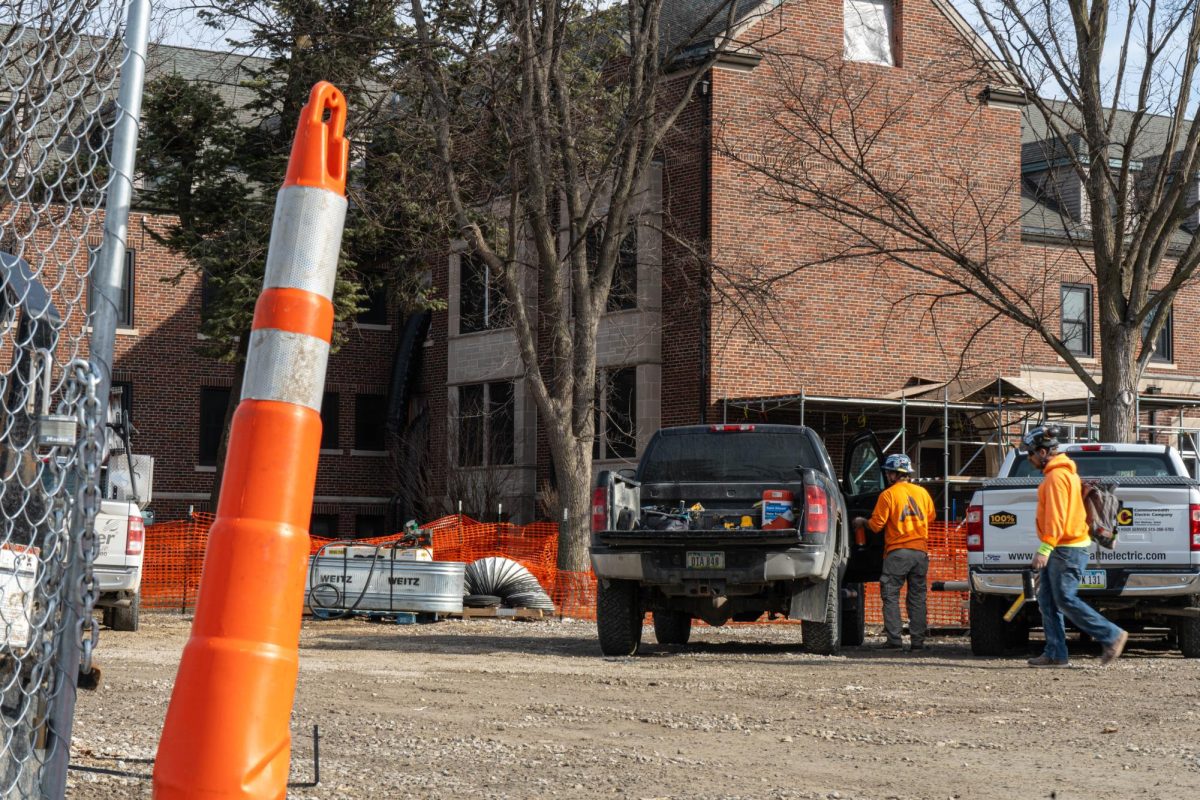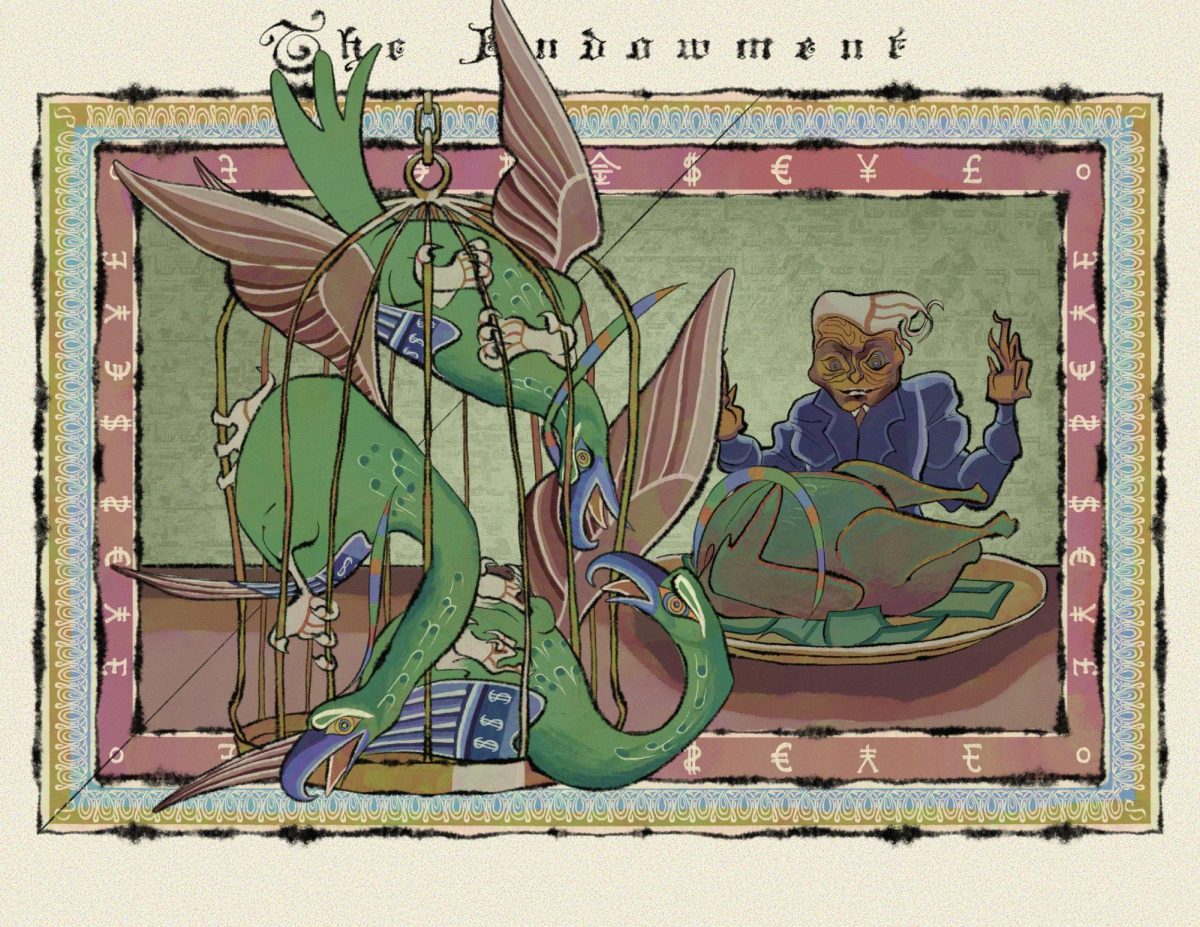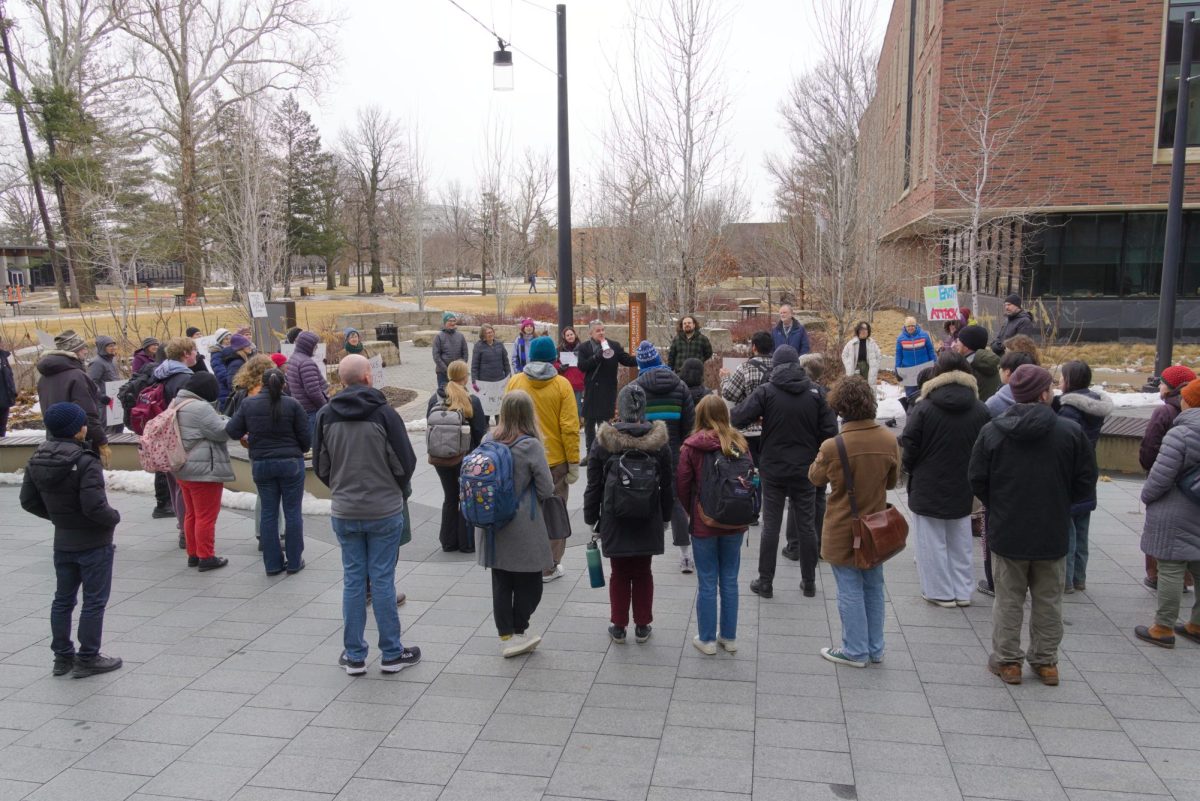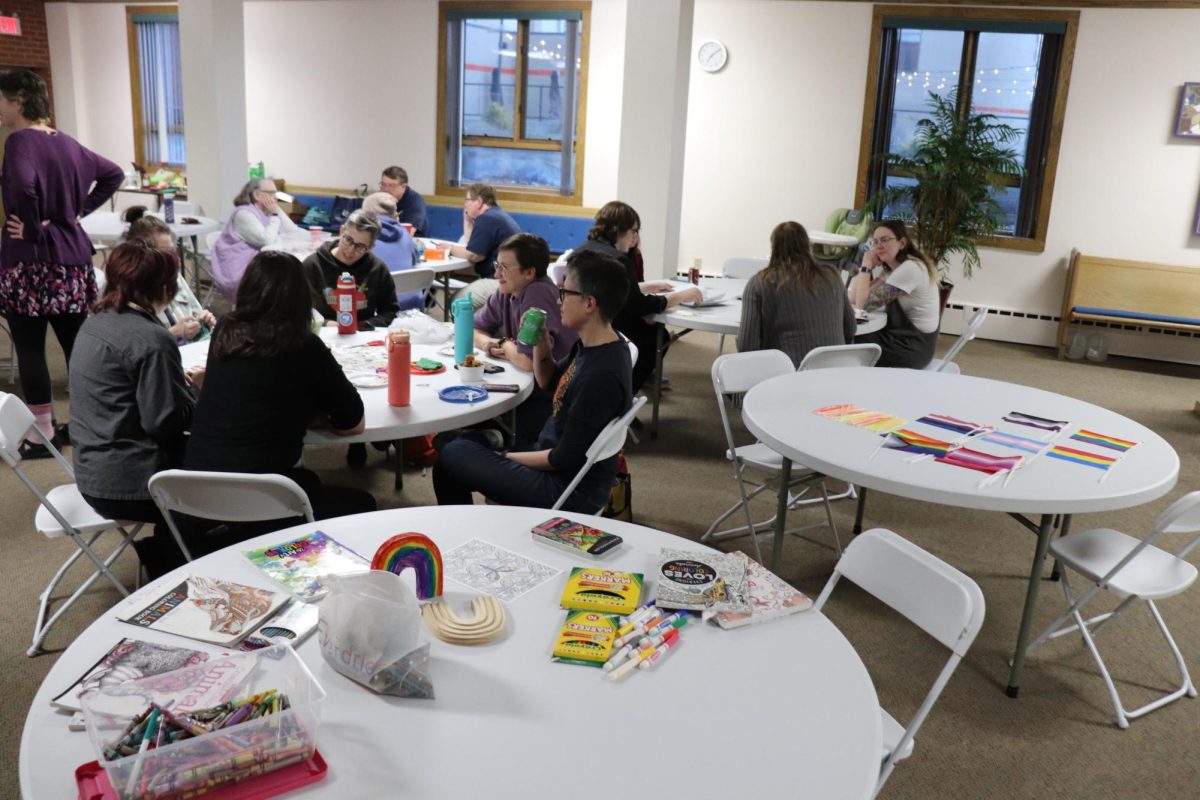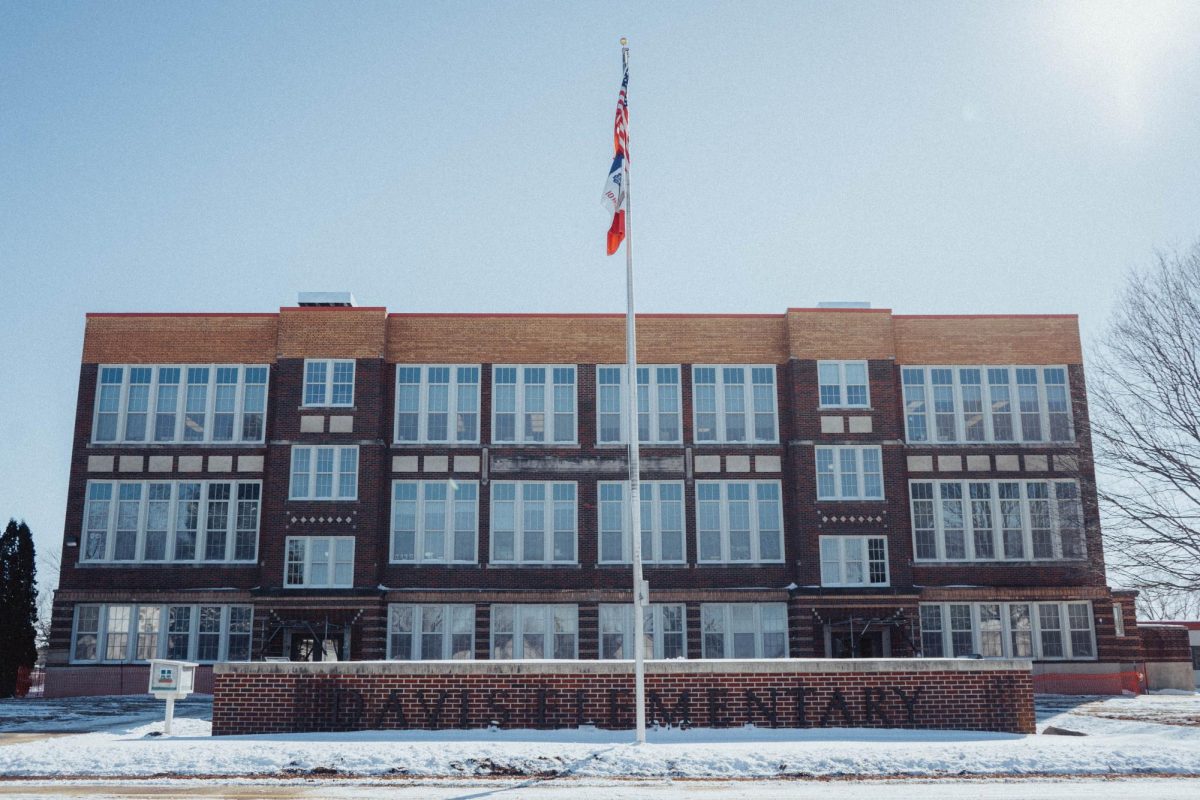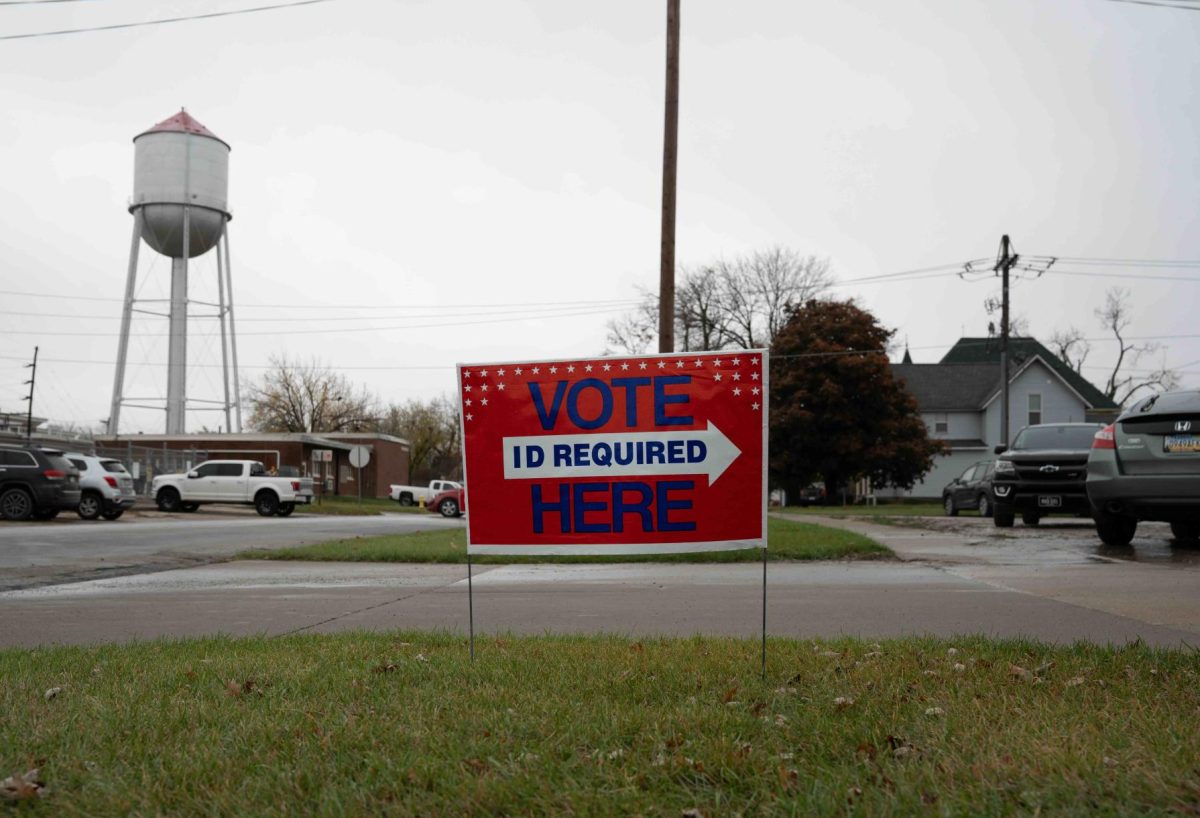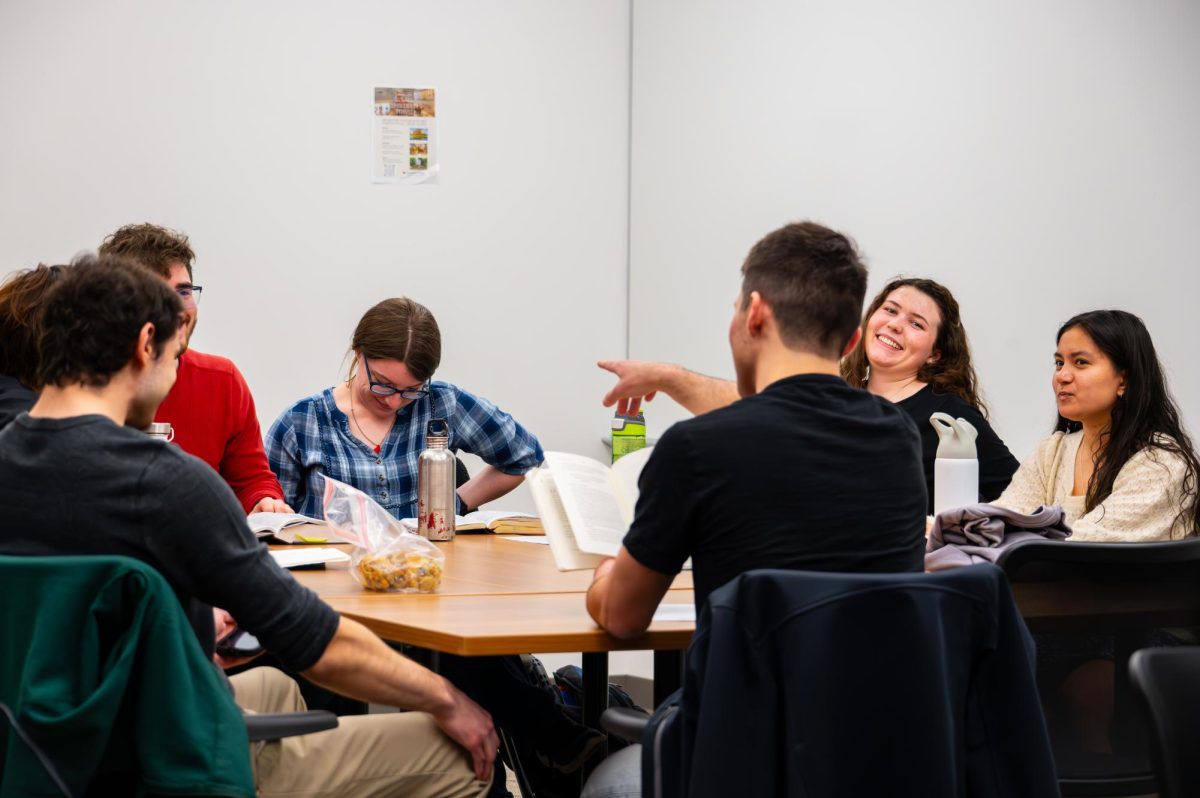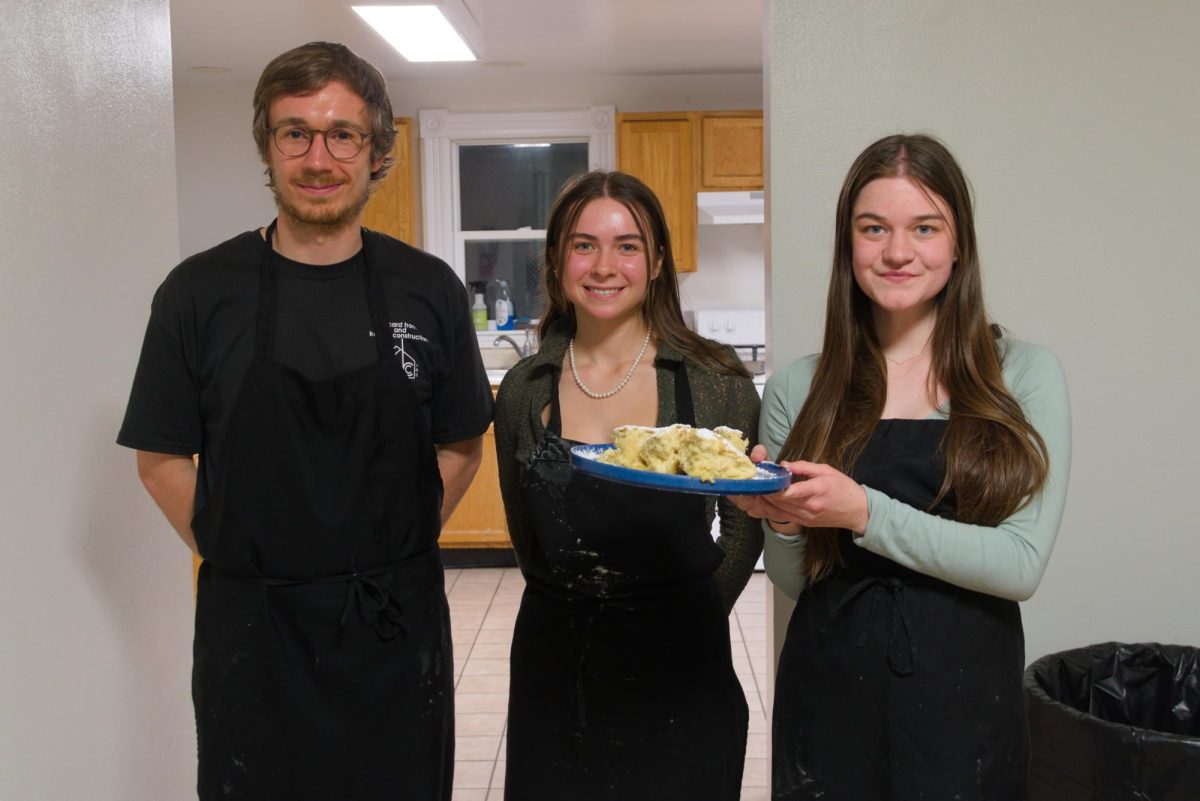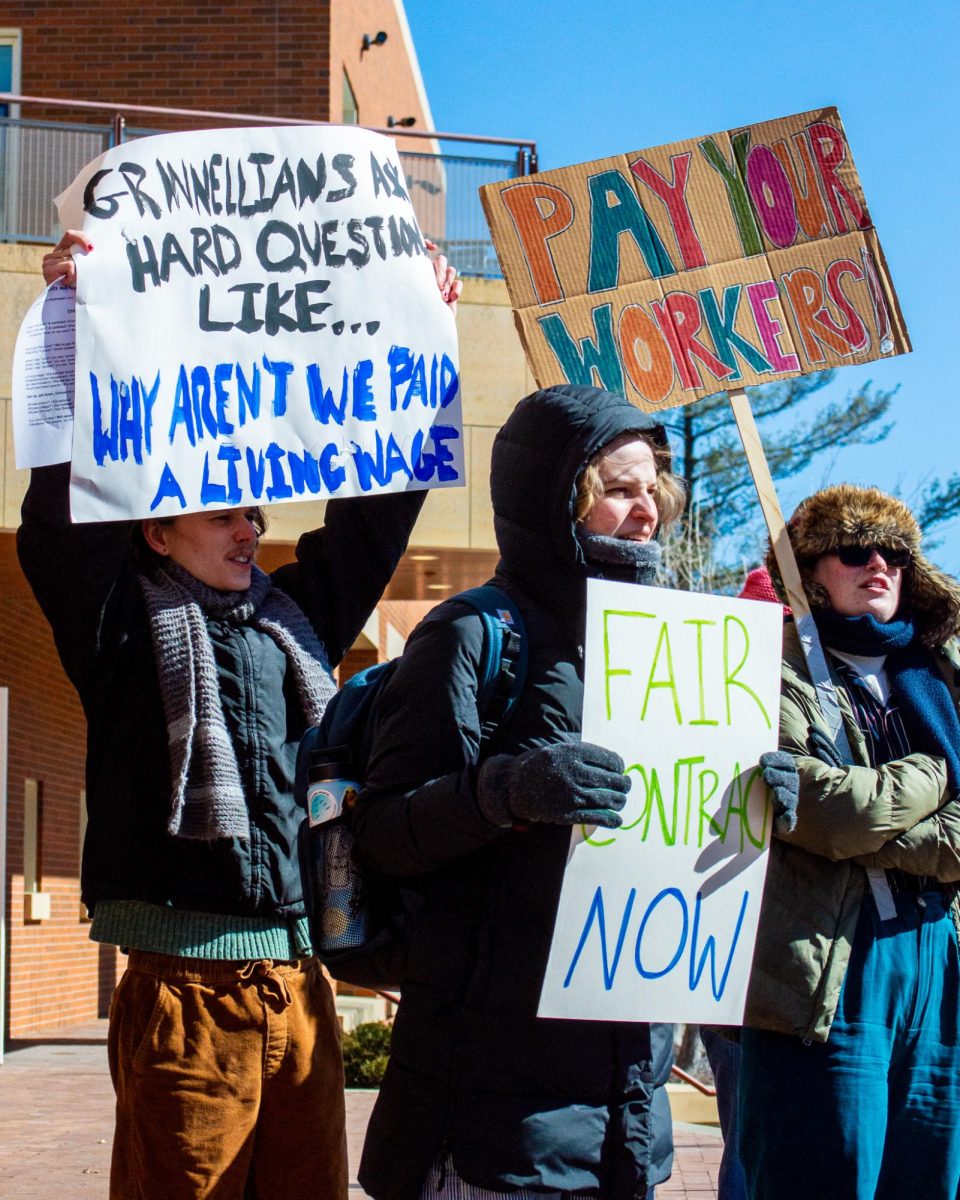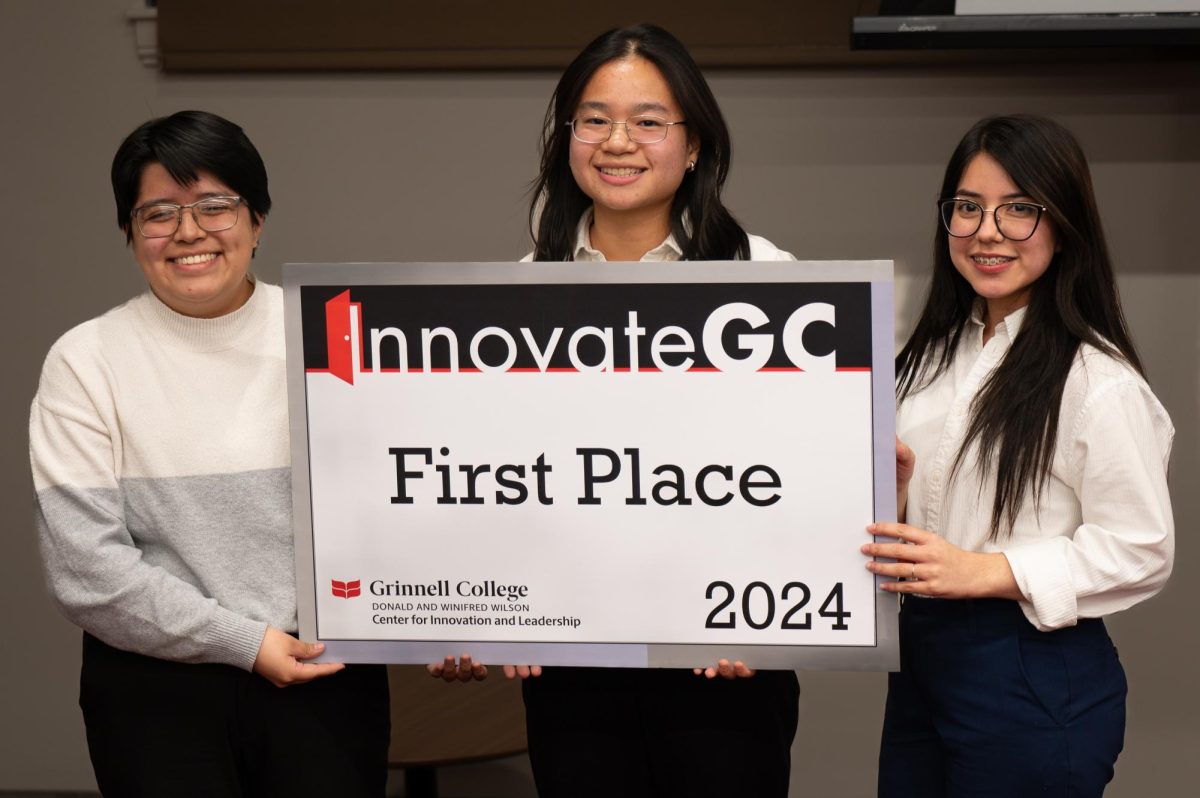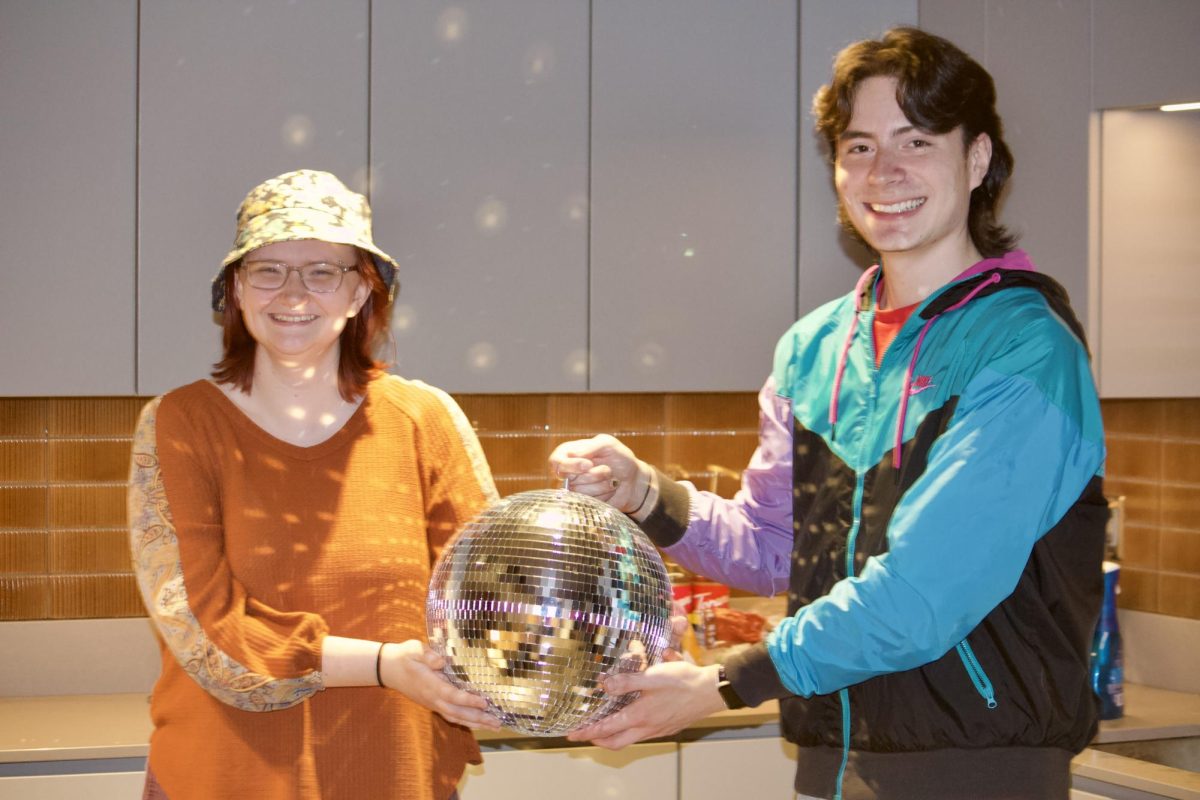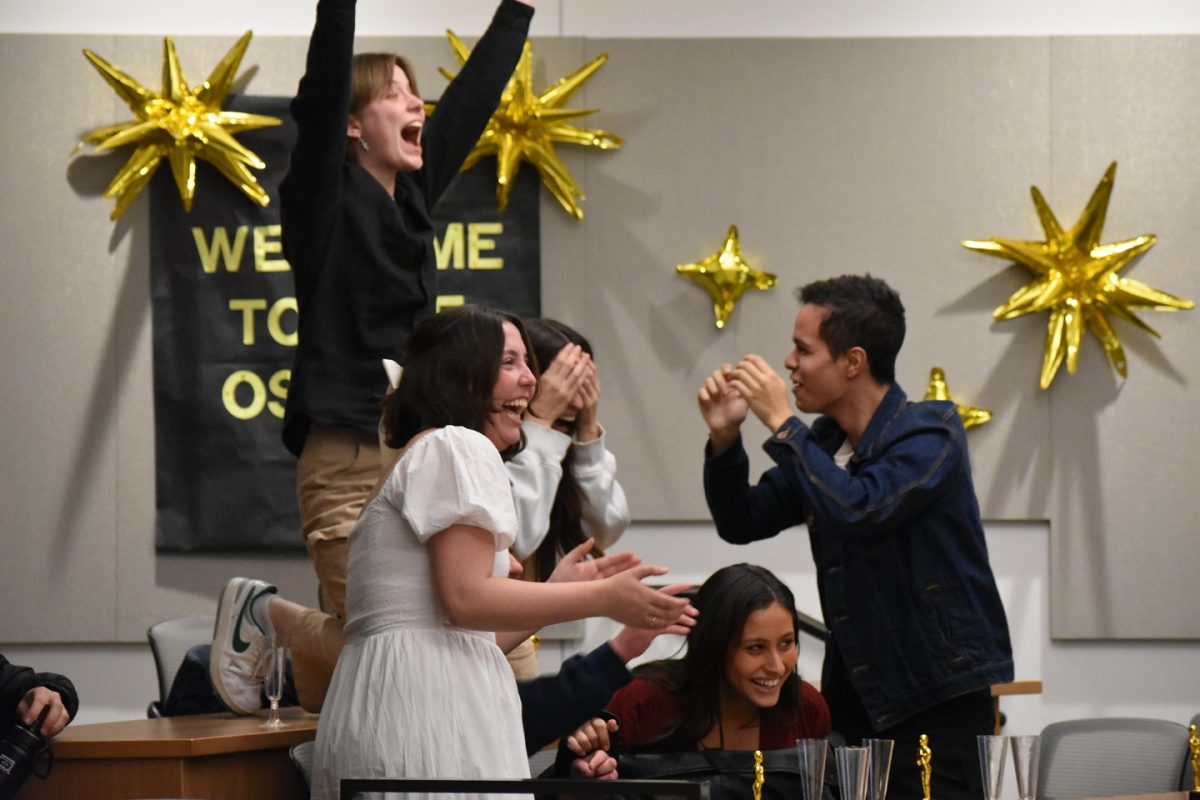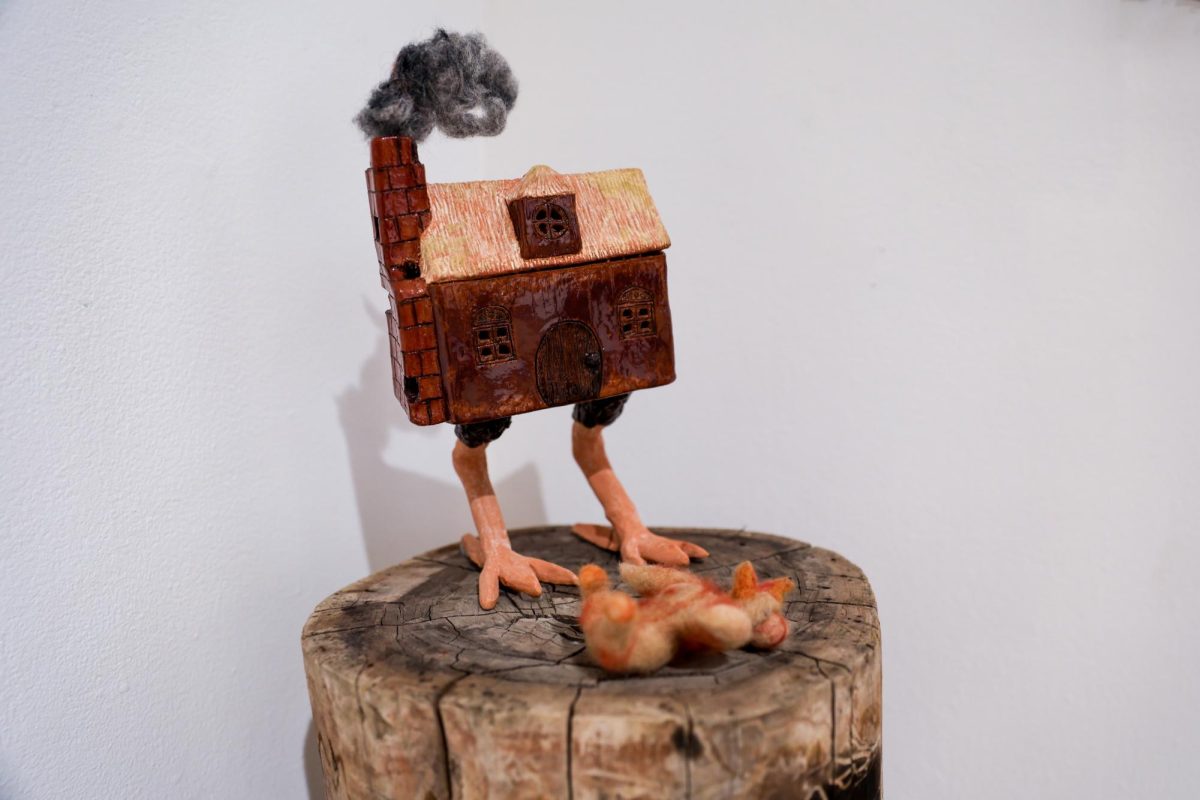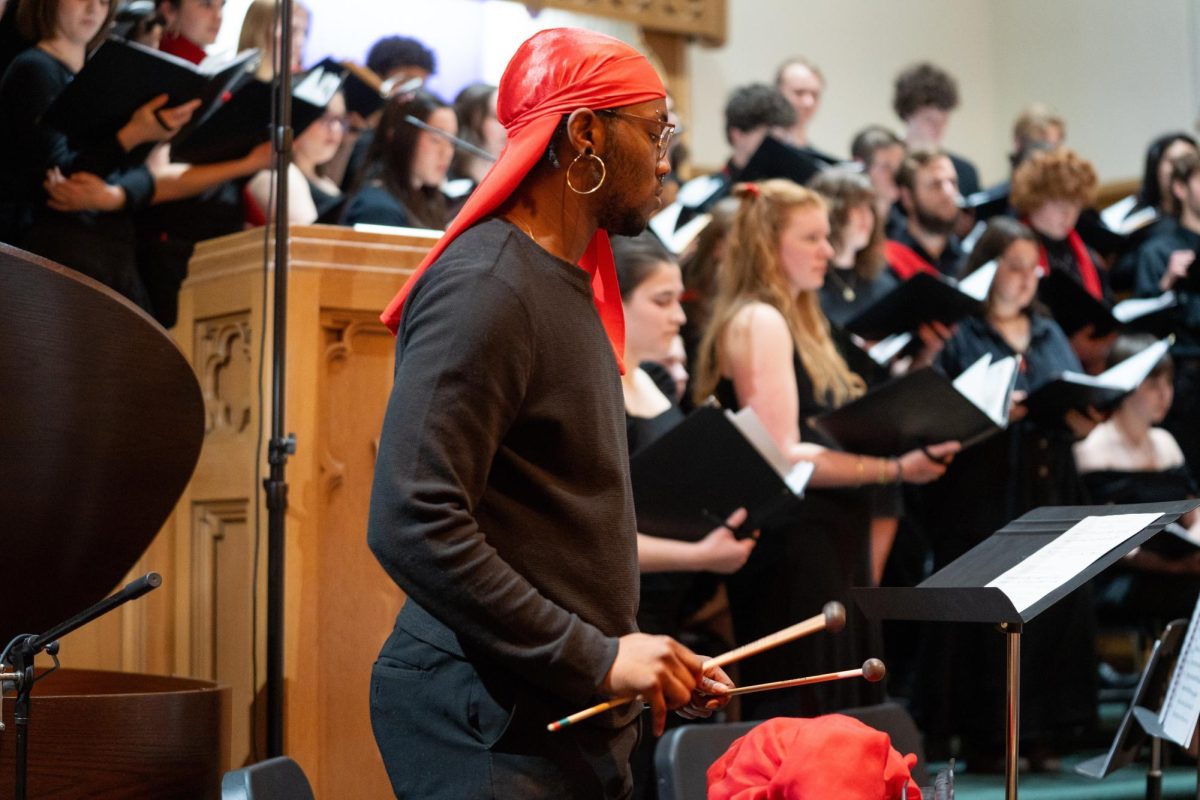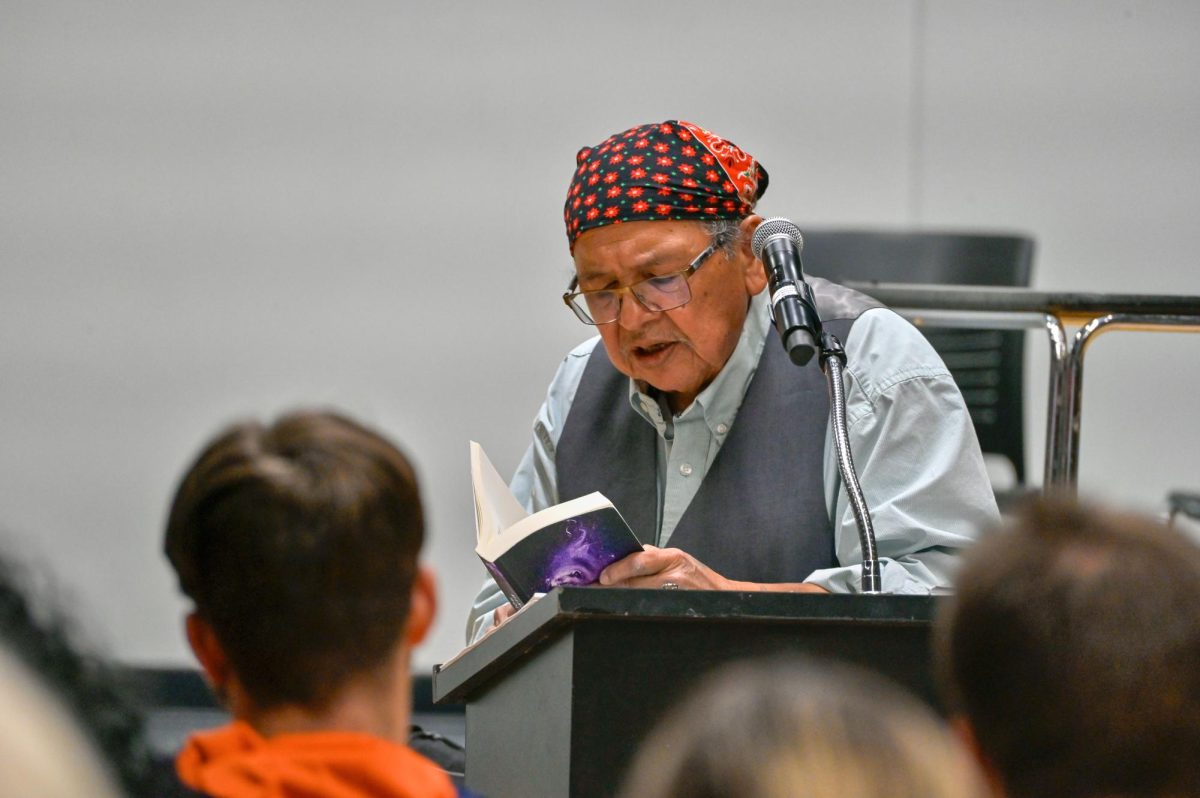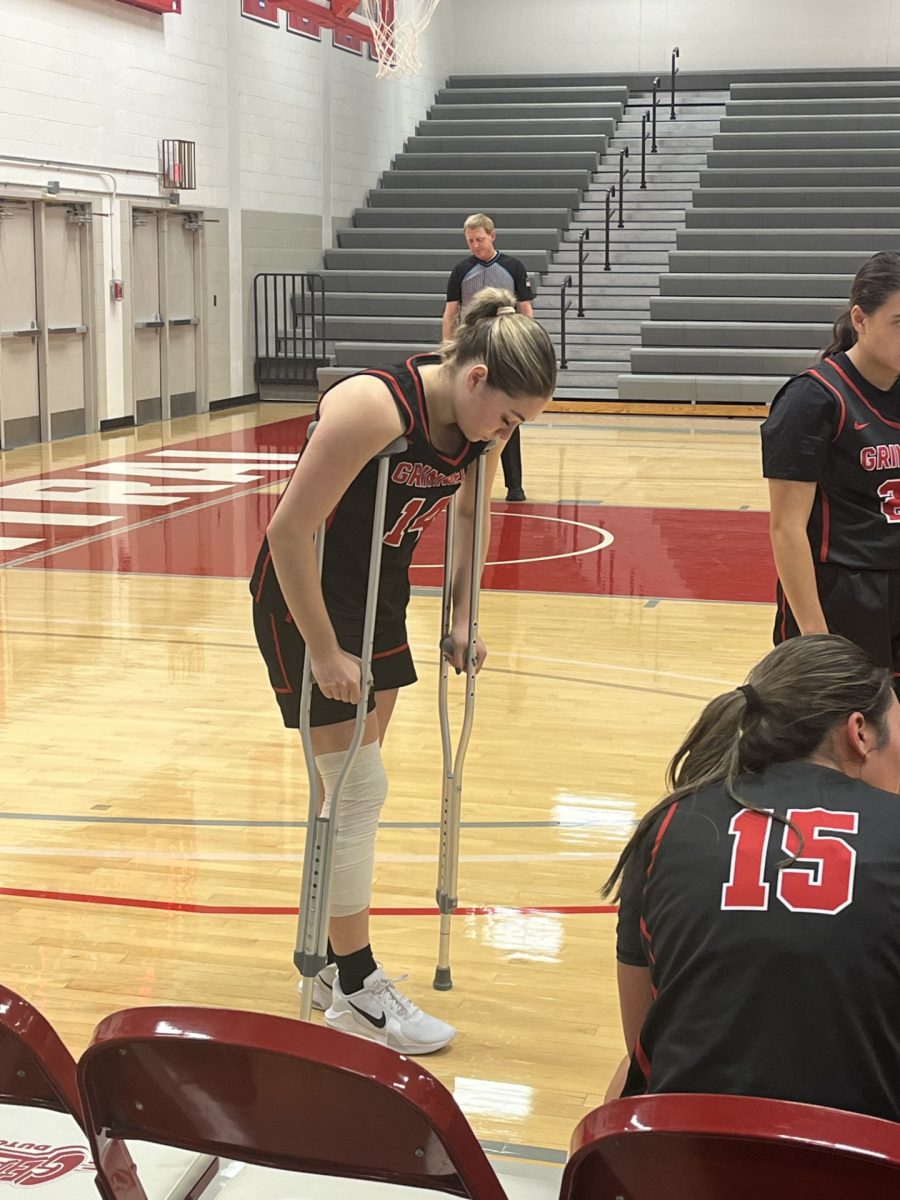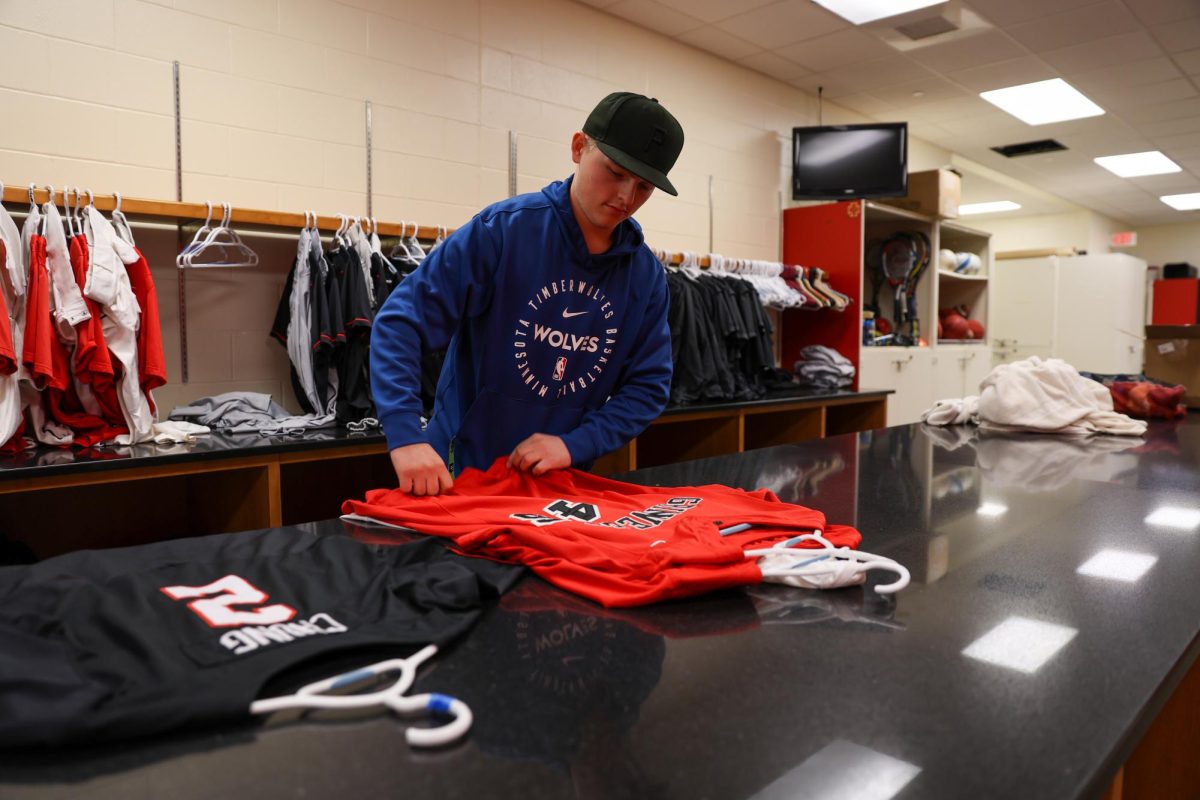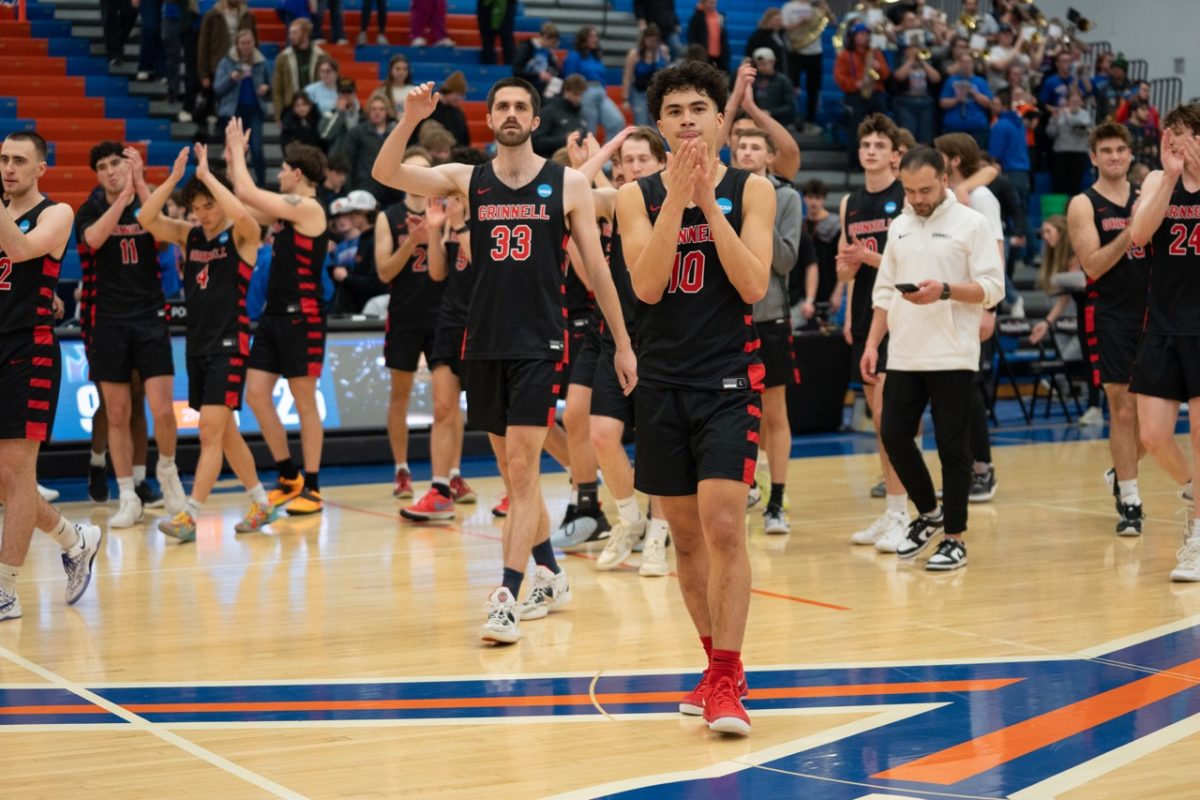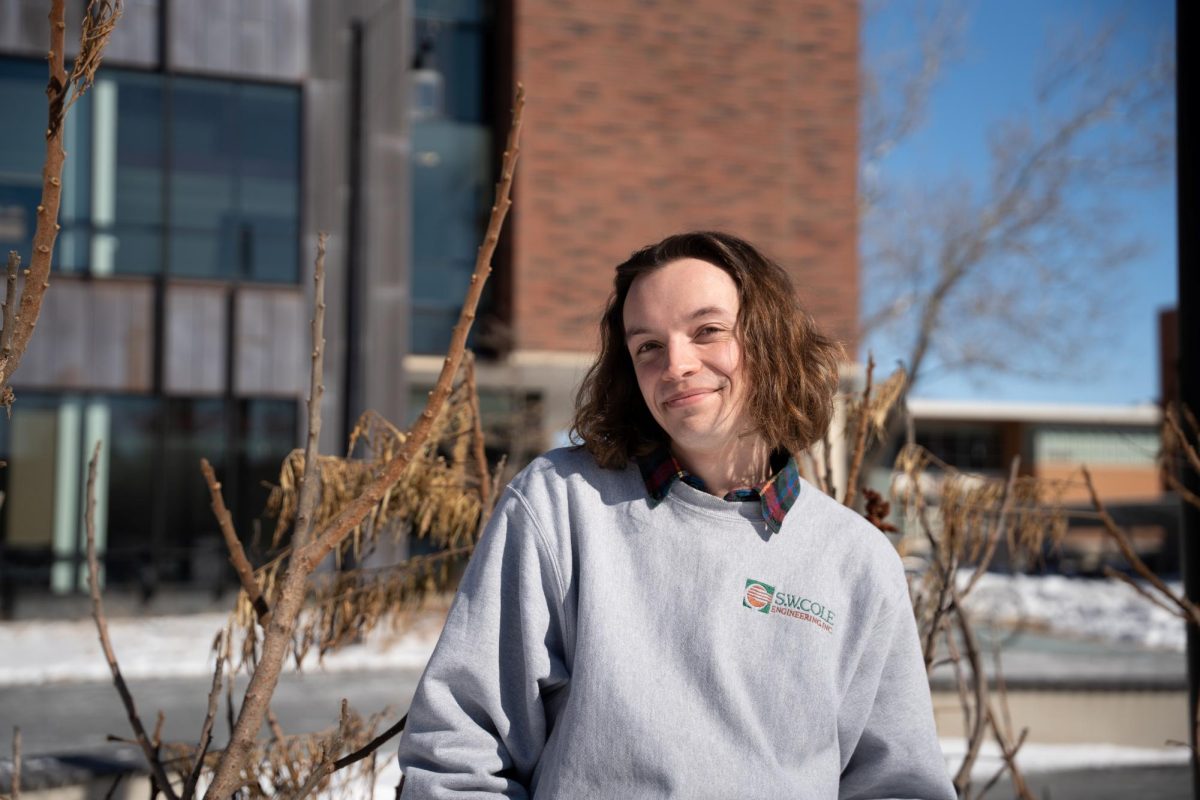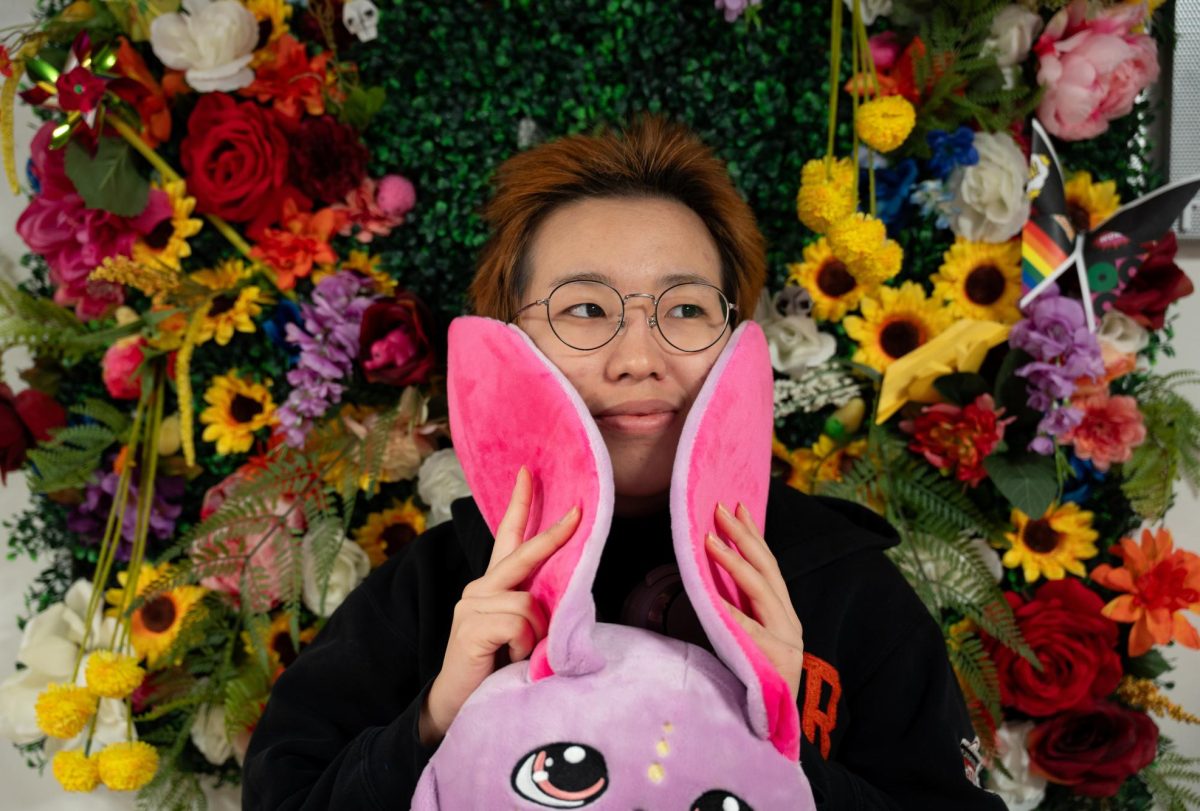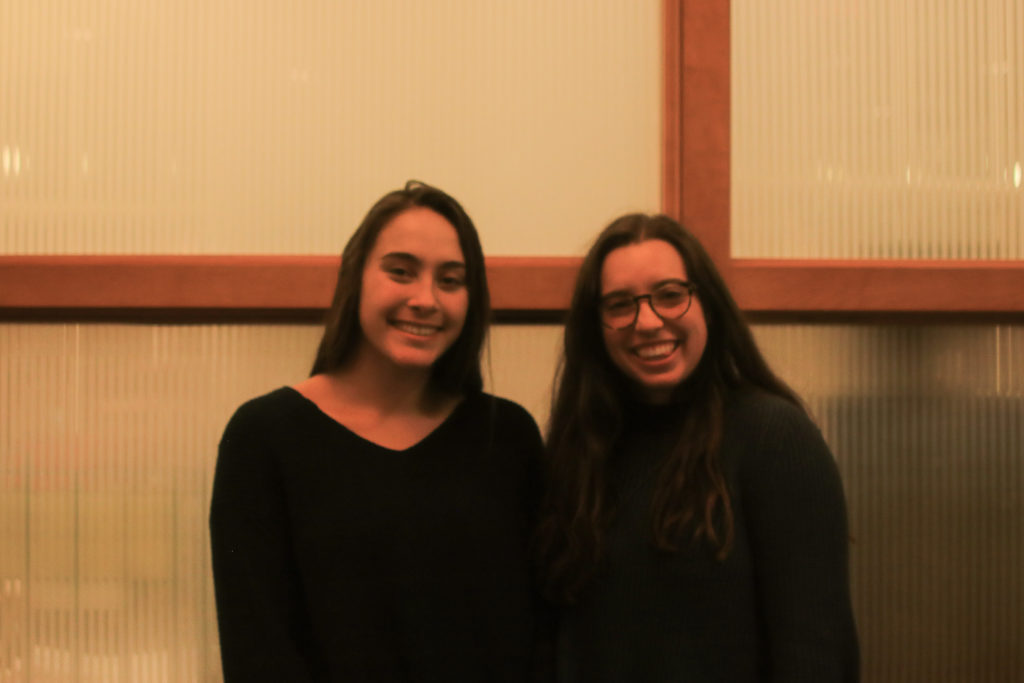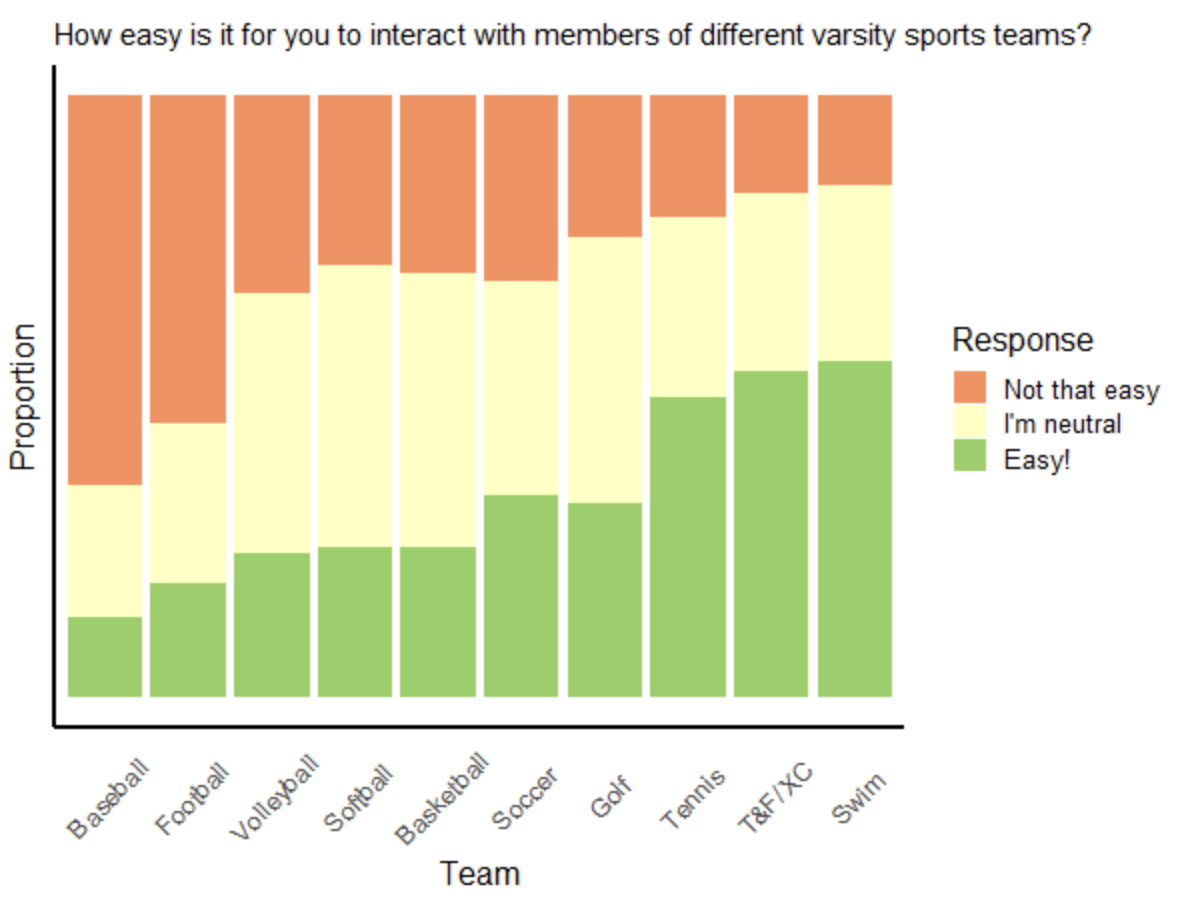On Saturday, Nov. 17, nearly 100 students and faculty faced below-freezing temperatures for the third annual Sexual Assault Awareness Walk, organized by Grinnell’s Student Athletes Leading Social Change (SALSC).
“It’s really important that we [as a community] are able to discuss the resources that are available on campus in an environment that is run by students and is a safe environment,” said Emily Jordan ’19, one of the walk’s organizers. “A lot of students don’t know about what’s available to them, so we try and provide an event where people can learn.”
The walk, which extended across the entire campus, featured representatives from Grinnell Advocates, the student athlete advisory council, the athletics department and other campus organizations, to point out campus resources and speak about the issue of sexual assault on campus and in the broader community.
“It is important to understand that sexual assault is a very big issue on a lot of campuses, and [that] it is an issue on our campus,” said Tyria Heath ’21, the other organizer for this year’s walk. “[Having the walk on a Saturday] extends the talk about sexual assault not just during the week but also on the weekends when it could matter most.”
Maddie Breunig ’21, who participated in the walk, felt that the event helped people engage more actively with the topic of sexual assault: “You often just see the resources on the back of the bathroom stall door, and it’s helpful to actually be walking around talking about them.”
The walk was originally modeled from the Take Back the Night Walk, an event dating back to the 1970s and still occurring today, that protests sexual assault, rape and domestic violence. Daria Guzzo ’19, the current president of SALSC, who helped start this event three years ago, was excited to see an increase in participation this year. Attendance doubled this year, with nearly 100 participants as compared to last year’s total of 51.
“It’s a really important event to do, and I think once people hear of it happening more than once they’re more likely to come out and support it,” said Guzzo. “It’s one hour of your Saturday night, but it’s really symbolic and meaningful knowing that our community is dedicated to making change and providing resources.”
This walk was SALSC’s first major event of the year, but the group is already planning for their next event in the Spring: an environmental campaign. Although a specific cause has not been identified, SALSC is considering incorporating a support drive for a current environmental issue, potentially the California wildfires, into their campaign. Additionally, SALSC wants to look past Grinnell students and engage the larger Grinnell community in their Spring campaign.
“[We want people] thinking about ways that we can be better citizens,” Guzzo said.
By engaging with both students and community members at the individual level first, SALSC hopes that these smaller, grassroots conversations can serve as a foundation for larger discussions about activism and social change.

